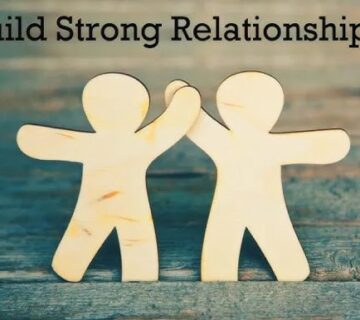Every relationship faces challenges—misunderstandings, unmet needs, conflicting priorities, or external stresses—that can create tension between partners. When problems escalate, many wonder if breaking up is the only solution. However, breaking up is not inevitable; with effort, patience, and the right approach, most relationship problems can be resolved, allowing love to grow stronger.
This article provides expert-backed tips on how to solve relationship problems without breaking up, focusing on understanding feelings, timing discussions, honest communication, and collaborative problem-solving.
Step 1: Identify What You’re Really Feeling
Before addressing relationship problems, take time to reflect on your emotions. Often, we instinctively want to blame our partner rather than understand our own experience. Sit quietly and ask yourself: What am I really feeling? Is it loneliness, rejection, overwhelm, or frustration?
For example, instead of thinking, “You don’t help enough,” consider “I feel overwhelmed balancing responsibilities and need more support.” Understanding your true feelings helps you communicate from a place of vulnerability rather than accusation, setting a more constructive tone for discussions.
Therapists emphasize that exploring your emotions first can prevent defensive responses and open up meaningful dialogue.
Step 2: Choose the Right Time to Talk
Timing plays a crucial role in resolving conflicts. Trying to start a deep conversation when your partner is distracted, tired, or stressed often leads to shutdowns or escalation.
Instead, communicate your desire to talk and ask when they might be ready. For example, say, “I’d like to discuss something important. When would be a good time for you?” Planning your talk when both partners can be fully present sets the stage for a productive and respectful exchange.
Finding mutually agreeable times shows consideration and respect, increasing the likelihood of positive outcomes.
Step 3: Approach Conversations with Openness, Honesty, and Kindness
Entering discussions with an open mind and kind attitude encourages your partner to respond similarly. Avoid blame, criticism, or aggressive language, which tend to trigger defensiveness and shut down communication.
Express your feelings honestly using “I” statements: “I feel disconnected when we don’t spend quality time together.” Acknowledge your partner’s perspective: “I understand you’re busy, and I appreciate your efforts.”
Be willing to compromise and explore solutions that work for both parties. For example, suggest, “Could we dedicate an hour on Wednesday for us, even if it’s just to watch a show together?”
A collaborative approach fosters mutual understanding and respect, helping you solve problems constructively.
Step 4: Work Together on Practical Solutions
Focus on finding actionable solutions together rather than dwelling on complaints. Share your ideas about what might help and ask your partner for their suggestions.
For example, instead of saying, “You never help with the kids,” try, “Would you be willing to handle the school drop-off twice a week? That would really help me feel less overwhelmed.”
Remember, your partner likely feels stressed or overwhelmed too. Supporting each other by dividing responsibilities fairly strengthens your partnership and reduces resentment.
Collaborative problem-solving reinforces teamwork and renews commitment.
Additional Tips to Strengthen Problem-Solving and Avoid Breakups
Practice Patience and Empathy
Resolving relationship problems takes time. Be patient with yourself and your partner’s shortcomings. Try to see the situation from their point of view, which can soften conflicts and create healing space.
Communicate Respectfully During Conflict
Avoid yelling, name-calling, or withdrawing. Stay focused on the issue without attacking character. Use calm tones and take breaks if emotions escalate.
Maintain Positive Experiences
Balance difficult conversations with joyful shared activities. Making time for fun, laughter, and connection replenishes the emotional bank account of your relationship.
Know When to Seek Support
If problems feel overwhelming or stuck, seeking professional couples counseling can provide tools and guidance to navigate challenges effectively.
Read More: How to Build a Strong Relationship: Essential Tips for Lasting Love and Connection
Summary
Relationship problems don’t have to lead to breakup. By reflecting on your feelings, choosing the right moments to talk, communicating honestly and kindly, and working together on solutions, couples can resolve conflicts and strengthen their bonds.
Therapeutic approaches emphasize that commitment to collaborative problem-solving fosters resilience and lasting love.








No comment